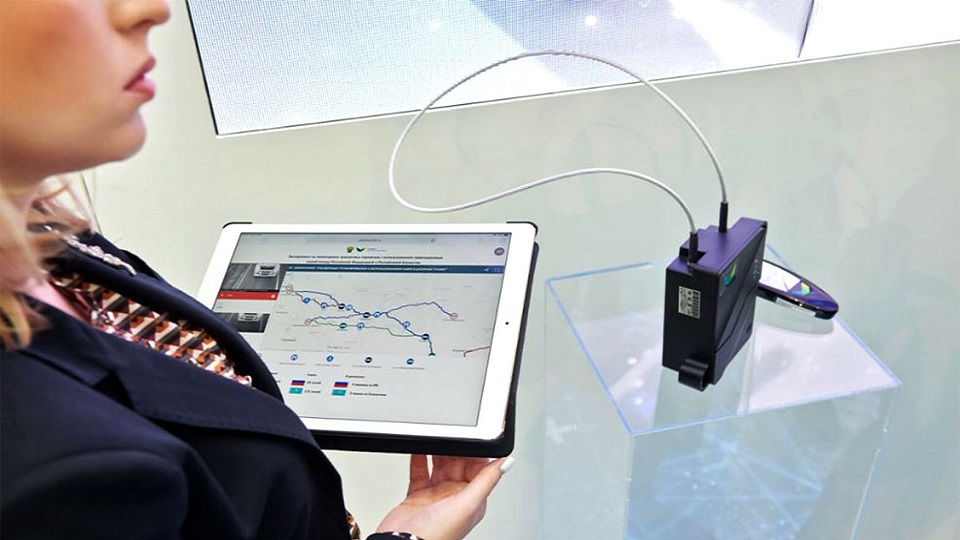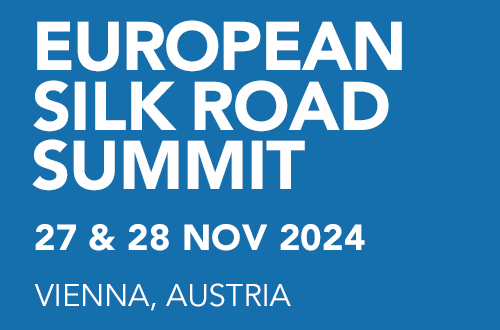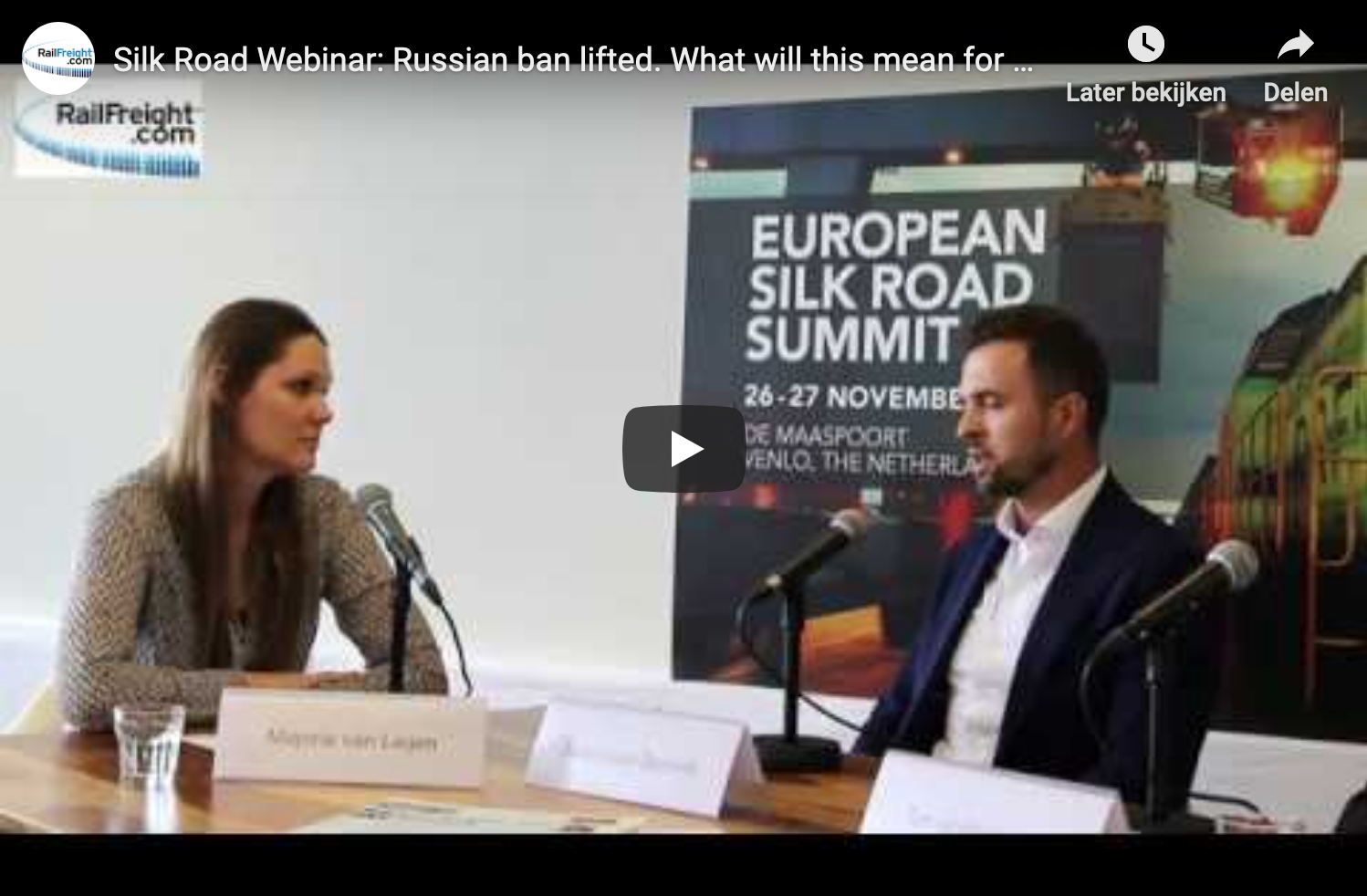Lifted Russian ban on transit traffic: big advantage with many questions
23 July 2019
Russia has lifted the ban on the transit of EU fresh products. What impact will the decision have on the European logistics industry? Which products are allowed for transportation via Russia? What requirements should the shippers meet to receive approval? These questions have been discussed at the RailFreight Webinar took place on 19 July.
On 24 June the Russian government decided to lift the ban on transit traffic of European products to third countries, including China. The new legislation took effect on 1 July. This measure was unexpected for both European and Chinese companies. Three weeks have passed but the decision still causes more questions than answers. Therefore, RailFreight.com organised a webinar dedicated to the lifted ban. Four experts participated:
- Sebastian Bennink, sanction lawyer at Wladimiroff Lawyers;
- Ton van den Hanenberg, lecturer/researcher in transport economics at Rotterdam University;
- Oscar Vermeij, New Silkway Logistics;
- Xinyao Zhang, GVT Intermodal.
Big advantage
“Almost 100 per cent of traffic from Europe to China goes by rail via Russia”, van den Hanenberg noted. According to him, the lift of the ban on transit traffic from EU countries will be an opportunity both for European shippers as well as for Russia. The latter will be able to increase the freight volumes transported via its territory. The existing alternative routes are very complicated, therefore the main benefits will be for Russia as a transit country.
Text continues below the video.
Vermeij and Zhang also positively appreciated the decision of the Russian government. “The lift of the Russian ban is a big advantage for us”, Vermeij said. His company operates a fleet of reefer containers. Thanks to the new option, it will be able to use them more intensively. Oscar Vermeij noted that New Silkway Logistics intends to double its volumes next year. Zhang also mentioned the plans of her company to increase traffic to China. “Now, 20 per cent of our containers go back to China empty. This place is waiting for new products”, she specified.
Special requirements
In spite of big prospects and advantages, the lift of the ban has a lack of clarity. “I thought that more processes are going to be shaped from Europe to China. That was my first reaction. But the second reaction was how we are going to do it”, Zhang told about her impression when she heard the news. The presidential decree approved on 24 June gave only some answers to her question.
The main requirement to transport transit goods via Russian territory is the obligatory use of electronic seals. These devices should be installed on containers in order to track the movement of cargo across the country. Last year, Russia carried out several tests of the electronic seals on trucks. Moreover, the draft legislation that will make the use of electronic seals obligatory for all transit goods is being discussed by the government.
However, the legislation for electronic seals is still unsettled. This situation causes other questions: where can the company obtain a seal, who is able to provide them, etc. Therefore, lawyer Bennink advises European logistics companies to contact Russian partners for the practical conditions.
Text continues below the picture.

Russian electronic seal, source: RT Invest.
List of products
Another important question is the list of products allowed for transit transportation. The decree of the Russian president just makes a reference to another document that imposed sanctions on EU food and provides a note that the products forbidden for import to Russia are now available for transit. The document lists the following types of goods:
- fresh and frozen pork meat
- fresh and frozen beef meat
- poultry meat and co-products
- lard and fat from other types of meat
- fresh fish and shellfish
- milk and dairy products
- vegetables, root crops and tubers
- fruits and nuts
- sausages
- salt
- other food products
However, the document has a lot of amendments. Bennink strongly recommends to check the specific product in accordance with Russian classification before shipping.
The questions do not end here. The above list of products requires shippers to own or operate a fleet of reefer containers. Will they be able to obtain them in a short period of time? – that is the question. Vermeij said that his company has already established a supply cold chain with temperature-controlled solutions.
Border bottlenecks
At the same time, the measure could impact Eurasian traffic via Russia at the border bottlenecks. Vermeij noted that the congestion on the border are not a problem for the New Silk Road because it includes several routes with various options to carry goods. “There is no single traditional route. There are many routes. I think there is still enough capacity to be filled with new volumes. Kaliningrad could be also a solution. There are many options”, he summed up.
Watch the webinar
Did you miss the webinar and do you want to watch it now? This is possible by following this link. The webinar was organised in the run up to the European Silk Road Summit, to be held on 26 and 27 November in Venlo, the Netherlands. More webinars on this topic can be expected.
morenews
Programme of #ESRS2023 is complete: Meet our speakers
– 3 November 2023 – The programme of the European Silk Road Summit in Budapest is complete! With 23 speakers from all over the world, the 7th edition of this industry event is set to become a success. The European Silk Road Summit, which is taking place from 29 November to 1 December in Budapest,… Read more ›
Deli Andor, Member of the European Parliament to speak at #ESRS2023
– 23 October 2023 – With just over a month to go until the European Silk Road Summit will be held in Budapest, Hungary, the list of knowledgeable speakers is growing fast. Deli Andor, who is a Member of the European Parliament, Dmitrij Hasenkampf from RTSB, Rashad Majidov from ADY Container and Zoltan Kozlovszky from… Read more ›
Nominees for RailFreight Ambassador 2023 announced
– 20 October 2023 – We are proud to announce the nominees for the RailFreight Ambassador 2023! Four industry professionals with extensive knowledge and experience in rail on the Eurasian corridor received the confidence of the industry. It is time to vote now! The nominees of the RailFreight Ambassador Award of 2023 are: Juergen Huschka… Read more ›

